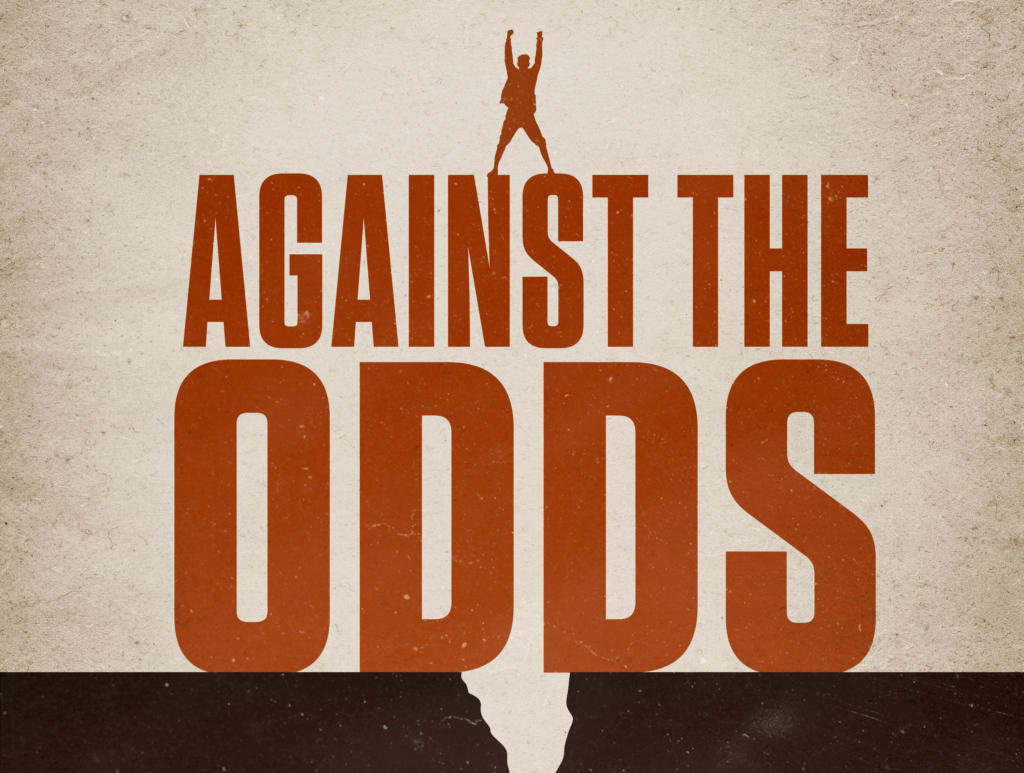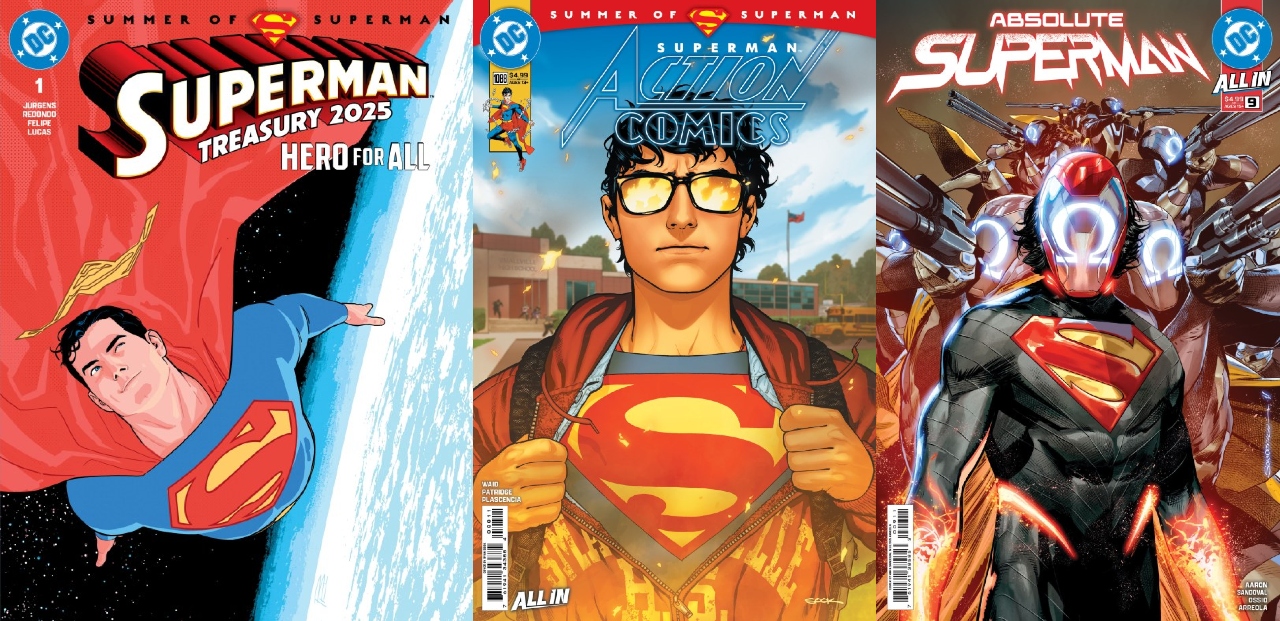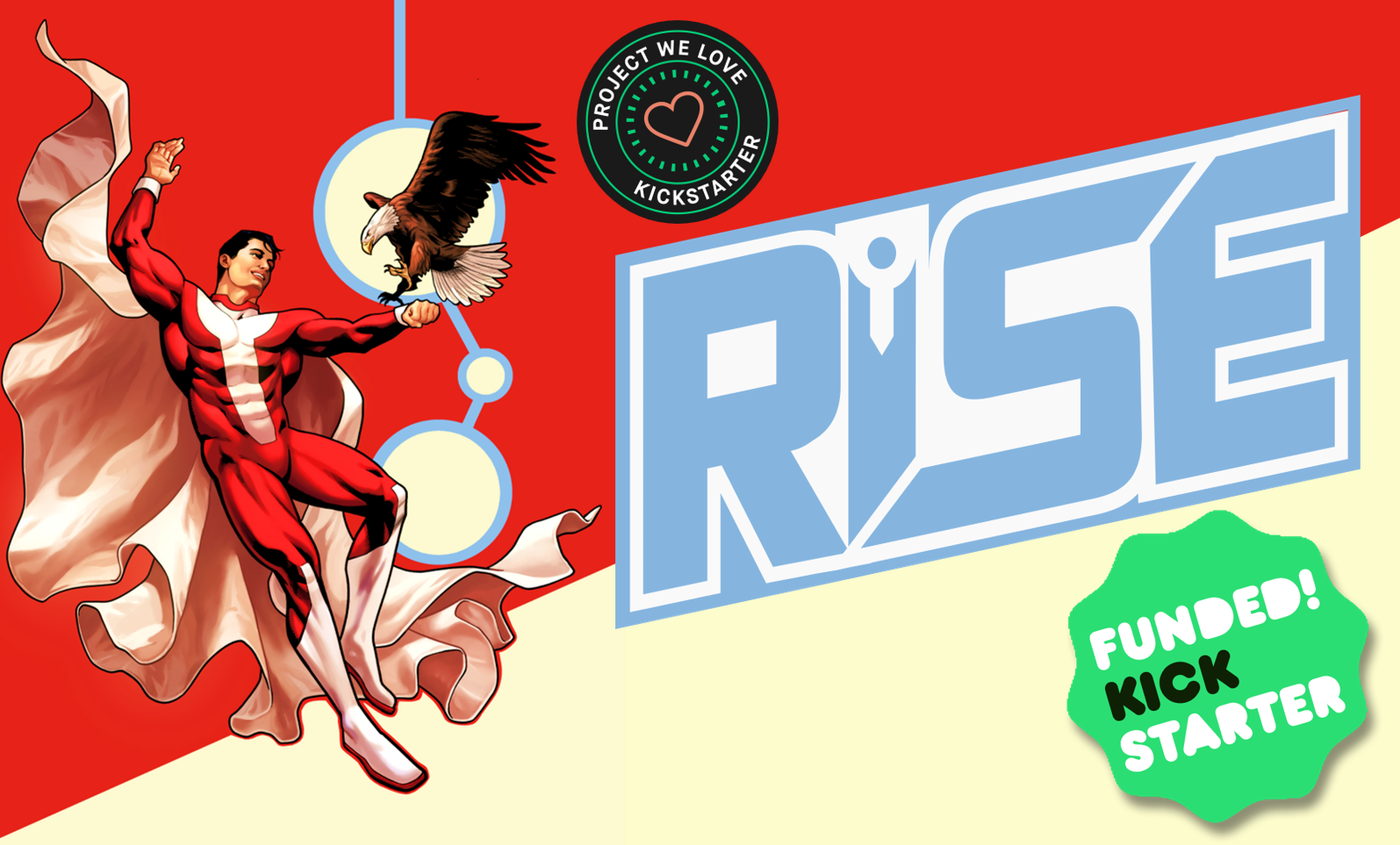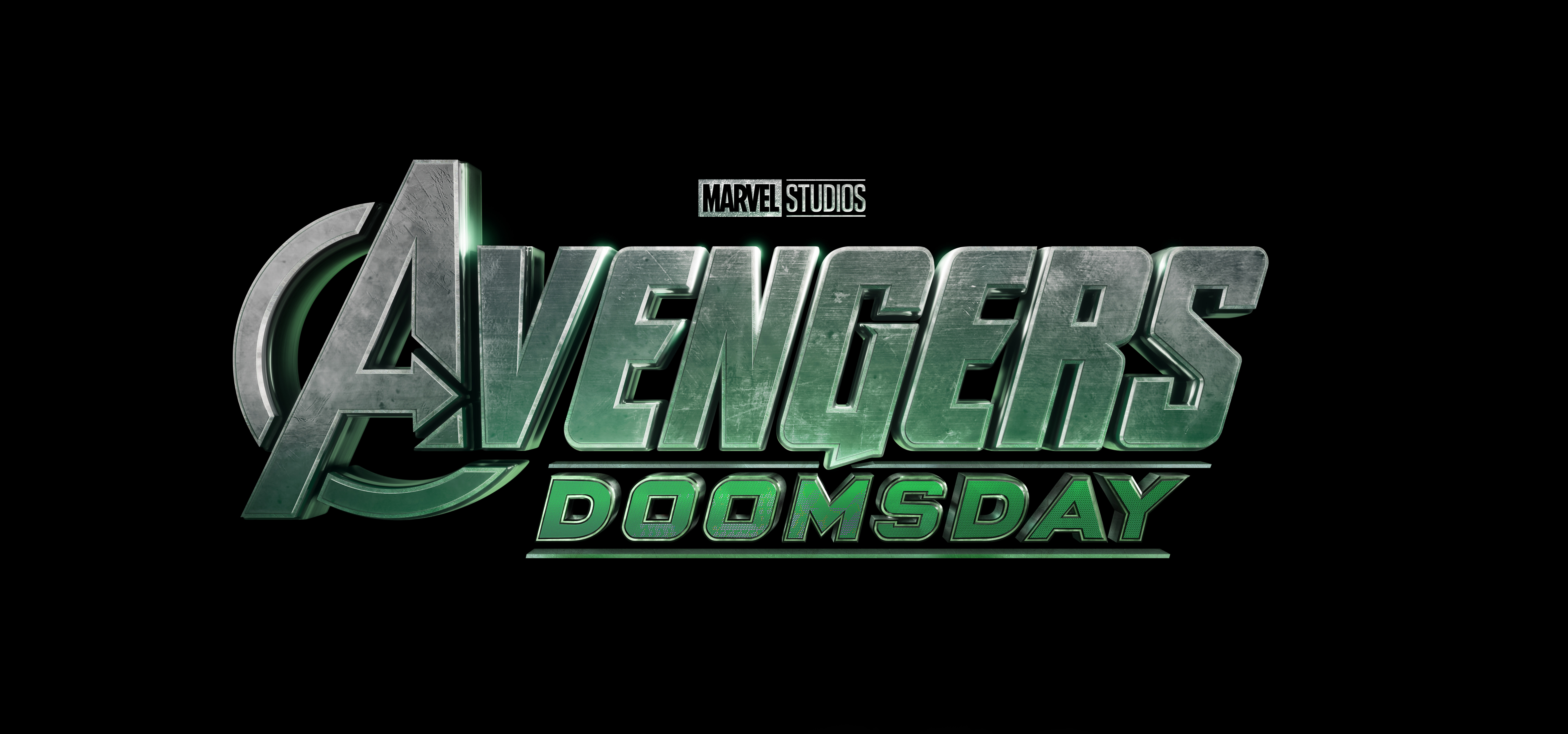
Humans are a fascinating species. When cornered or in a devastating situation, humans can band together to overcome all obstacles.
The new podcast Against the Odds on the Wondery network, the podcast focuses on tales of human survival.
In its first story arc, the podcast explores the unbelievable rescue story of a soccer team trapped in an underwater cave in Thailand. The second storyline to follow is about a woman taken hostage by Somali pirates.
The hosts, Mike Corey and Cassie De Pecol narrates these stories and make the listeners feel like they are part of it.
LRM Online’s Gig Patta chatted with one of the hosts, Mike Corey, on his participation in this new podcast. We talked about the Thai rescue cave story, cave diving, and his adventures.
Mike Corey is a marine biology graduate turned filmmaker with a strong desire to travel. After receiving his degree, he backpacked the world as a research assistant for scientists studying ocean conservation. He logs his adventures by bringing a camera along and never shies away from adventures. He has a personal YouTube channel and is a travel host for BBC.
Wondery’s Against the Odds is now available.
Read the interview transcript below. Let us know what you think.
ALSO CHECK OUT: Unsolved Mysteries Host Steve French Talks On Launch of Podcast Series [Exclusive Interview]
Gig Patta: Congratulations on this new podcast Against the Odds on the Wondery network.
Mike Corey: They sent me a raw first episode of the podcast. Let me tell you, I like what they did with this podcast by the sound design and everything. You’d listen to the headphones and actually feel like you’re underwater. They got the bubbles, the cracks of the rock, and the chaos. It’s so it’s really cool. I’m excited to see it all come together.
Gig Patta: It’s one of those narrative podcasts that you’re telling the story. I’ve heard the first episode along with you.
Mike Corey: It’s exciting. Actually, I’m a scuba diver myself. In fact, I’m quite a hefty scuba diver, probably run with almost a thousand scuba dives now. I’ve been in caves before. When I first came across the script, I’d never done a podcast before. Never actually listened to any scripted podcast, I’ve always heard interview podcasts. Most of the time, I was traveling about 11 months out of the year for this job.
I’m an adventure, travel YouTuber, and television host. I bounced between a few things. This audition came across my inbox around 3:00 a.m. in Romania, I was browsing emails quickly after getting off a plane and I saw it for podcast hosts. So I looked at it that it was a story of the Tham Luang cave and the boys who got stuck in it.
That story was incredible. Personally, I was completely amazed by everything that unfolded. So I read a bit more about Against the Odds and the premise of thrilling tales of human survival. For myself, I loved the focus on challenging myself in my travels. My alias is fearless and far. Only because I make myself fearful, sometimes pushed into the things that make me scared.
For me, it was public speaking, crazily enough for most of my life. Now, it’s my entire job is to speak. [Laughs] Fear and challenges are something I really like talking about because everybody has this hero inside of them. In moments of strife, trouble can channel a person to become greater than they think they can be.
That’s exactly what this podcast was, right. This podcast is about tales of human survival. Overcoming public speaking is not the equivalent of rescuing 12 boys and their soccer coach from a cave. But, it’s still a challenge and humans thrive on. Mainly, on these stories of heroes rising up to the occasion.
Every movie is exactly that, right? I had to keep on pinching myself during this podcast to remind myself this isn’t fiction. The fact is all of this happened. It’s too crazy to be a fact. For me, it was really exciting to record it. And I did record it at 3:00 a.m. I didn’t know if I had a voice for it. I don’t have any formal training in speaking at all. It was going for emotion. Try to make things that make people feel emotion. I think it worked because here we are.
Gig Patta: Well, Mike, I want to remark that you and I are speaking visually right now. I want to say you do not have a face for podcasts. You’re a good-looking guy.
Mike Corey: Well, thank you. It is quite late here in Tanzania where I am right now. But, I appreciate that.
Gig Patta: How did you train yourself for a narrative podcast for something like this? I listened to it. I felt excited. It was like I was in the moment myself.
Mike Corey: Well, the teams that are really good job writing it and a really good job putting in the sound design and everything else there. For me, speaking wasn’t something that came naturally. It took a lot of practice. It’s funny when you work really hard at something for five or ten years, people start calling you a natural. It’s actually the opposite in most cases.
Speaking is one of these things that seems easy when you’re with your friends, your buddies, and your family. You’re just talking back and forth, chit-chatting. When you actually have to enunciate every single word to keep the flow going and when you’re reading a script, it’s really hard.
It takes a lot of practice. The funny thing is everyone’s advice is that you should be yourself. Be yourself on the camera. In reality, you can’t be yourself. It feels so awkward. It feels so strange to do it. It’s a lot of practice and a lot of just understanding that everyone has quirks and stumbles. I had to work through a lot of those as well.
Even during the podcast, I know there was a couple of takes we had to do something like 15 or 20 times. It’s because I couldn’t say “other than that” or whatever twisty syllables. Also, I got to work with a vocal coach named Sabra, who was really interesting. We had breathing techniques, especially for a podcast like this.
We had to channel emotions for this podcast. There are all kinds of ups and downs with twists and turns. We’re so sensitive to voice, tone, cadence, and how you can shape a voice. It was a cool lesson in removing the camera part and acting out the voice part of it. The funny thing is when you’re doing voice work, voiceovers, or readings, you end up acting yourself.
I might be talking by saying, “the boys were stuck in the cave.” Really, you are almost physically had to do it. Or if it’s a sad part, you have to make yourself sad. It’s the small little tweaks in our voice. Happier. Sad. Up and down. Suspenseful. Tense. All of that comes from how you’re actually acting or feeling. The camera might be off, but there is a show happening behind the microphone in recording these things. I don’t think I’m the only one that does it that way to really get the emotion by physically act it out.
Gig Patta: As a world traveler yourself, have you ever been to Thailand? Are you familiar with the areas that you narrated?
Mike Corey: I’ve been to Chiang Rai. I’ve been to Thailand. I’ve been scuba diving in Thailand. So, I’m very familiar. I’ve probably been to the country five or six times now.
Gig Patta: That’s terrific. That’s about the same amount of times I ever been to Thailand myself, but I never been to Chiang Rai. All I know that it’s a little colder and rainier there.
Mike Corey: I haven’t been in that cave, but I’ve been in those kinds of caves before with mountain limestones carved by rainwater. It’s an ancient coral reef, which is a really interesting thing. As the water flows through, it makes these really intricate passageways, like giant anthills. They’re very complicated and can be very dangerous even when there’s no water in them. It’s really easy to get lost. There’s no cell phone signal in there. Plus, there are no signs posted. I can’t imagine those things are dangerous and complicated when they’re dry. I can’t imagine what it was like when they were flooded.
Gig Patta: Since you’ve done it before with underwater scuba diving, what is it really like to underwater scuba dive into a cave?
Mike Corey: So scuba diving isn’t as dangerous as people make it out to be. Your air strap on your back. Maybe you’re in an environment that’s very foreign, but panic is the thing that’s most dangerous. the equipment itself actually is built. If it does fail, it fails in the opposite direction. It doesn’t stop the air. It gives you all the air. Then you have to go back up, but you’re not going to suffocate. They can’t break in a way that stops giving you air. As long as you’re breathing and going slow, there’s very little that can happen.
I compare it, for example, we did Kilimanjaro a couple of weeks ago. If you’re doing a hike in Kilimanjaro or anywhere with you’re with the tour guide, you’re not going to walk in the opposite direction. If your tour guide going this way, then you’re going to go 90 degrees off the cliff. You’re going to follow the tour guide.
It’s the same thing with scuba diving with a tour guide. By having a divemaster, and you follow him. Unless if he goes off into the depths, everything should be okay. The thing though about cave diving is you can’t go up if there’s a problem. Up above you is rock. You’re going down, down, down in the twisting passageways.
Another element is the water can be very clear in these beautiful caves. That’s a reason why people go down there to see these beautiful light shafts, especially in Mexico. It’s really beautiful, but a lot of them are narrow. You have to swim through the small passages. Your fins can hit the bottom and usually, there is silt on the floor. If you stir up the silt, all of a sudden you’re swimming in fog. You can’t see anything at all. That’s a big problem when you can’t go up.
Compared to underwater in the ocean, if it’s foggy you can go up. You know how to get out. It’s up. In a cave, you go the wrong direction, then it’s bad news. It would easily be as dangerous as free solo rock climbing or base jumping. It is one of the most dangerous sports in the entire world–cave diving. Not scuba diving, but cave diving.
Very, very dangerous. And beautiful in there. You have to know your stuff. The training costs tens of thousands of dollars, not to mention the specialized equipment. It’s not cheap to learn how to do it. It’s very complicated and it’s not many teachers.
Gig Patta: Do you know how many episodes that you ended up narrating for this Thai cave story? And are there other topics that you’re going to be covering down the road?
Mike Corey: We did four episodes telling the story arc of the Tham Luang Cave rescue with the boys. The fifth episode in that story arc will be the interview with someone involved with the story. That’ll conclude that chapter of the podcast. Then there’s a second host named Cassie [De Pecol]. We’ll be going back and forth telling these four or five-episode story arcs. I’ll be back again for the third story arc, which is undetermined at this time.
Gig Patta: Have you met your co-host Cassie yet?
Mike Corey: No, actually. We go live to the podcast on the 23rd of February. Then on we have a recording with Cassie on Wednesday, two days from now where we get to meet each other. It’s going to be an episode we’re going to actually publish with the podcast. You can meet us, both hear about what we do.
I had heard about Cassie a couple of times through friends because she is a Guinness World Record holder for traveling to every country in the world. In various interesting ways, she’s a big traveler herself. There are not that many of us who are completely head over heels addicted to travel. Friends of friends are one degree of separation between mostly everybody. We haven’t officially spoken, but I know of her and I’m excited to talk travel with her.
Gig Patta: That’s pretty exciting. Not to mention that you’re a world travel yourself. I’m assuming you’re pretty close to hitting every country around the world.
Mike Corey: It’s 70 right now, which is good. I’m not Cassie. Cassie’s got all of them 196, which is the Guinness World Record recognizes. I try to find stuff that blows people’s minds. [Laughs] For example, I just went hunting with the Hadzabe Tribe in Tanzania. The Hadzabe Tribe is one of the last remaining tribes in the world who are pure hunter-gatherers. They only eat what they catch and we went out baboon hunting. I wish I could show you my legs right now. They’re completely lacerated with thorns.
These guys sprint through these thorn bushes. They have some dogs. They’ve got spears and poisoned arrows. And they hunt literally whatever they can find. We had an incredible experience there. I got to eat some funky stuff that I dare not say. But, I got accepted because of my strong stomach, not my hunting ability. So I find these wild adventures in faraway corners. My travel style is a bit slower, but I really try to try to push myself beyond my comfort zone. This is why I love this podcast to their stories are a little bit more epic than mine. [Laughs]
Gig Patta: I feel like you should create another podcast, just your travel podcast for yourself. So people could track your adventures.
Mike Corey: I’ve got a YouTube channel, so it’s all on YouTube. I would love to do a podcast someday, but right now it’s YouTube Against the Odds. Also, I am a host on a BBC travel television show too. Those three keep me very busy.
Gig Patta: Let me wrap it up with one more thing, with you, Mike. Obviously, the pandemic is not an isolated incident. It is a worldwide issue right now with travel a bit constrained in its own way. It sounds like you are doing a little bit of traveling, how are you really staying sane and creative during this whole time.
Mike Corey: In the beginning, we all had a hard time for the first few months. For me, it was just deciding that I have to find more challenges in my life. In the beginning, it felt like a giant snow day. At least, you’re in California and I was in Canada. In Canada, everything was closed. It’s like, “Oh my, God. What’s happening outside?” You just stay in to watch some movies and let it all unfold. Then it kept unfolding and it’s still unfolding. Eventually, I started to feel being a shell of my former self. Before, I traveled a lot. I did jujitsu and martial arts. All these things that require being out in the world and now I couldn’t do anything. Then I decided to start challenging myself to find these weekly, monthly challenges.
That got me out to the world again and also got me in some pretty interesting scenarios. I’m excited about things like this podcast because it’s such an immersive experience. You can really get lost in it. It came together so well with the audio design and the storytelling. With the writing, you can truly feel like you’re somewhere else. It’s a beautiful piece they put together at Wondery. If someone’s having a tough day and want to get lost to feel like they’re abroad, then this is the podcast for them.
Gig Patta: Before I let you go, besides this podcast, what other challenges are you pushing yourself here in 2021? Most of us aren’t pushing for anything.
Mike Corey: That’s really funny. I had this crazy idea. Like I told you, I was stuck with COVID. I was a shell of myself and I was fortunate enough to be able to travel again. One goal I set for myself to do something crazy. So I wanted to climb Kilimanjaro while holding a watermelon on my shoulder. It’s a nine-day trek with a watermelon that weighs about 15 pounds. [Laughs] Last week, I got back from carrying a watermelon on my shoulder up 5,995 meters to the top, the tallest point in Africa. It was excruciating and difficult. That’s no Thai cave rescue, but it was a challenge. [Laughs]
I just like seeing what I can do by pushing myself that way and coming up with these crazy ideas. Mount Kilimanjaro isn’t a dangerous mountain. You still have to watch out, but it’s the probability of really hurting yourself as quite low. I wanted to push myself in a relatively safe environment to see what I was capable of. That was the first challenge. I’ve got some other secrets coming up next. But, I like seeing people overcome challenges and also making myself try to overcome challenges too. There’s magic there in learning about your potential in life,
Gig Patta: You’re a very good person to admire and I will have to admit that. I really do appreciate you speaking to us about, Against the Odds podcast here. I have to ask cause I’m curious–what did you do with the watermelon once you got to the top?
Mike Corey: It’s actually funny. We named it Walter Mellon. I didn’t know if it was going to freeze or if it was going to explode from the altitude. It ended up like rotting halfway through. At the beginning, it was this beautiful green thing. By the top, it was just brown and full of cuss and calluses. So, we cut it open and ate it. Honestly, it was the best watermelon I’ve ever had in my entire life. Maybe it was just the sweet satisfaction of just tearing it in half. But, it was delicious actually. We ate it on top of that mountain and that was a great ending to the story.
Gig Patta: That is a great end to the story. Well, Mike, appreciate you speaking to us about this. Can’t wait for everyone to check out the, Against the Odds podcast on Wondery.
Mike Corey: Thank you very much.
Wondery’s Against the Odds is now available.
Source: LRM Online Exclusive, Wondery

 FOR FANBOYS, BY FANBOYS
Have you checked out LRM Online’s official podcasts and videos on The Genreverse Podcast Network? Available on YouTube and all your favorite podcast apps, This multimedia empire includes The Daily CoG, Breaking Geek Radio: The Podcast, GeekScholars Movie News, Anime-Versal Review Podcast, and our Star Wars dedicated podcast The Cantina. Check it out by listening on all your favorite podcast apps, or watching on YouTube!
Subscribe on: Apple Podcasts | Spotify | SoundCloud | Stitcher | Google Play
FOR FANBOYS, BY FANBOYS
Have you checked out LRM Online’s official podcasts and videos on The Genreverse Podcast Network? Available on YouTube and all your favorite podcast apps, This multimedia empire includes The Daily CoG, Breaking Geek Radio: The Podcast, GeekScholars Movie News, Anime-Versal Review Podcast, and our Star Wars dedicated podcast The Cantina. Check it out by listening on all your favorite podcast apps, or watching on YouTube!
Subscribe on: Apple Podcasts | Spotify | SoundCloud | Stitcher | Google Play



